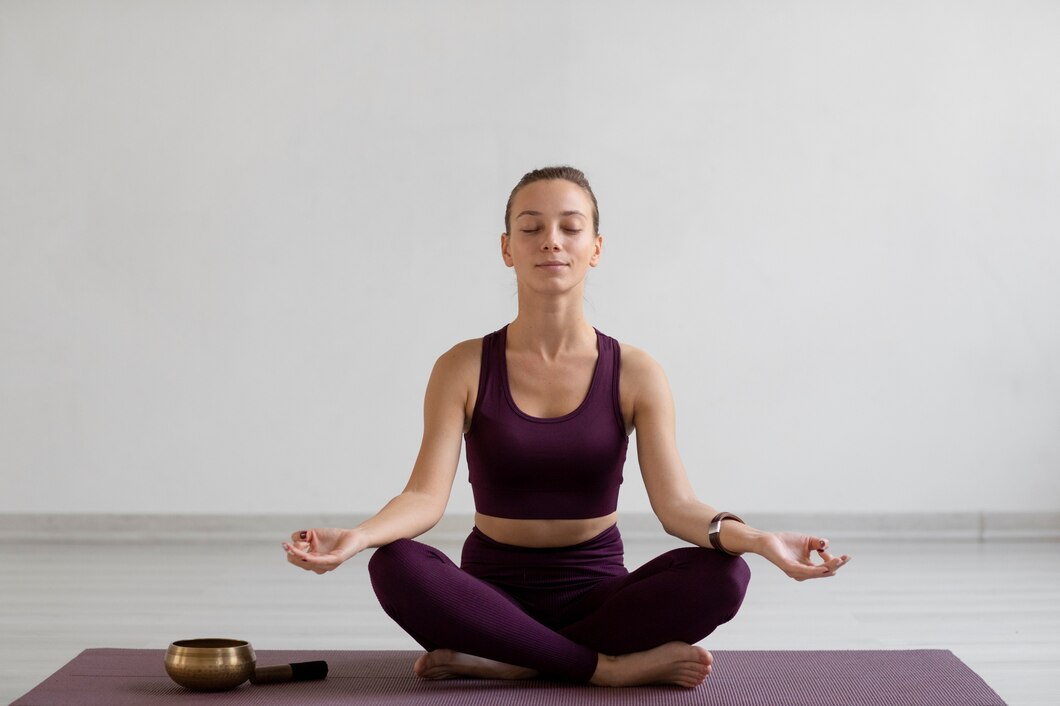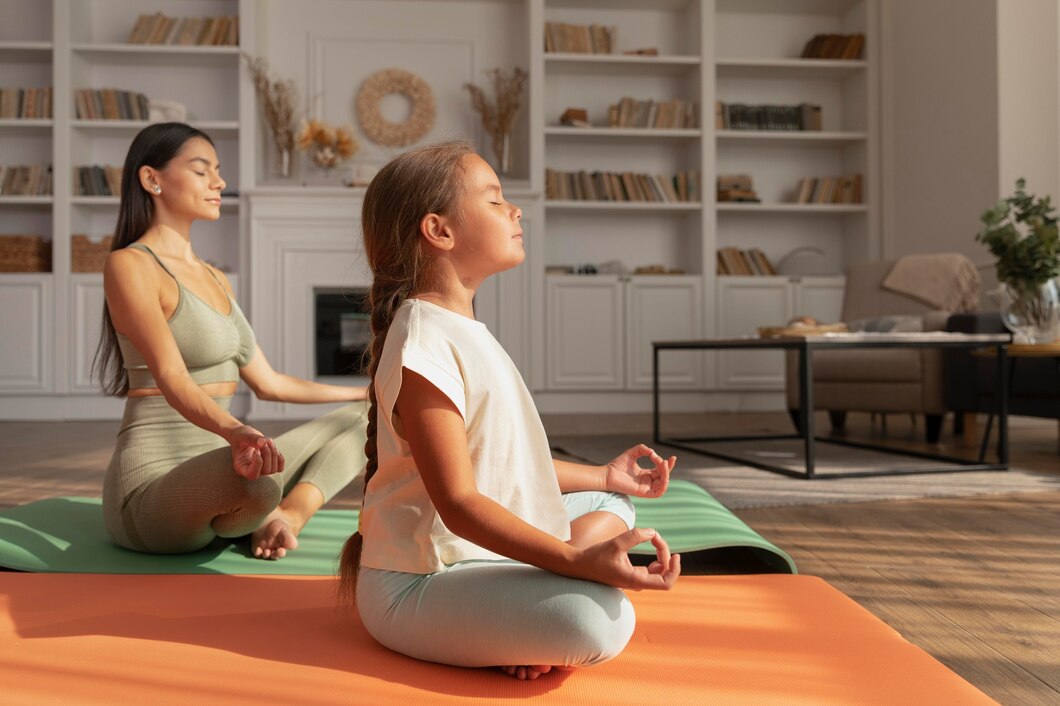
The Power of Meditation and How it Can Change your Life
In today’s high-speed life, preserving intellectual clarity and emotional equilibrium is paramount. Meditation is one of the best stress management techniques. Meditation has been around for millennia. It has been shown to lower stress, increase concentration, and enhance well-being in general. Daily incorporating mindfulness practice into your life can help heal you. In this guide, you will learn all the advantages of meditation. It also outlines the steps to start your travel to a more peaceful life.
Understanding Meditation
Meditation helps you focus. It leads to relaxation, awareness, and inner peace. It has different types, like mindfulness, transcendental meditation, and guided visualization. Each type offers its own special benefits.
Key Types of Meditation:
- Conscious Meditation: This practice focuses on being present. You observe your breath, body sensations, or thoughts without judgment.
- Loving-Kindness Meditation – Encourages self-compassion and positive feelings toward others.
- Spiritual Meditation – Uses a mantra or sound to help the mind settle into deep relaxation.
- Guided Meditation – Led by a teacher, including imagery and breathing exercises.
- Movement Meditation – This includes yoga, tai chi, and walking meditation. It blends mindfulness with physical movement.
Regardless of the method practicing meditation regularly can bring calm and balance to your daily life.
Meditation Benefits for Mental and Physical Health

Scientific research continues to unravel the powerful effects of meditation on both the mind and body. Researchers have linked regular mindfulness practice to many positive health outcomes.
1. Stress Reduction
One of the most well-known meditation benefits is its ability to reduce stress. Meditation helps reduce cortisol levels, leading to a calmer state of mind.
How Meditation Works as a Stress Relief Technique:
- Slows down racing thoughts and promotes relaxation.
- Lowers blood pressure and heart rate.
- Enhances emotional regulation, making it easier to cope with daily challenges.
- Reduces symptoms of anxiety and depression by calming the nervous system.
2. Improved Focus and Concentration
Regular mindfulness practice helps the brain focus for a long time. This boosts productivity and cognitive performance.
Benefits for Mental Clarity:
- Enhances memory and problem-solving skills.
- Reduces distractions and improves attention span.
- Helps with decision-making and emotional intelligence.
- Boosts the prefrontal cortex, which helps with planning and self-control.
3. Emotional Well-being and Anxiety Relief
Meditation helps you become more aware of yourself and your emotions. This makes it a strong tool for lowering anxiety and depression.
How Meditation Supports Mental Health:
- Encourages positive thinking and emotional stability.
- Helps manage negative thoughts and feelings.
- Promotes self-compassion and resilience.
- Reduces feelings of loneliness and increases social connectedness.
4. Physical Health Benefits
Beyond mental health, meditation positively impacts the body, supporting wellness.
Physical Health Improvements:
- Strengthens the immune system by reducing inflammation.
- Improves sleep quality, reducing insomnia and restlessness.
- Supports heart health by reducing blood pressure and reducing the risk of diseases.
- Reduces chronic pain by increasing pain tolerance and decreasing the perception of discomfort.
5. Enhanced Self-Awareness and Personal Growth
Meditation helps people connect with their inner selves. This connection leads to greater self-discovery and personal growth.
Self-Growth Benefits:
- Increases self-discipline and motivation.
- Helps individuals break negative habits and develop healthier behaviours.
- Encourages a deeper sense of purpose and life satisfaction.
- Improves emotional intelligence, leading to better relationships and communication skills.
How to Start a Meditation Practice

If you’re new to meditation, starting with simple exercises can make it easier to build a habit.
Steps to Begin Your Mindfulness Practice:
- Find a quiet space – Choose a peaceful environment where you are not disturbed.
- Get comfortable – Sit in a comfortable position with a straight back, or lie down if preferred.
- Focus on Your Breath – Notice how you naturally breathe. Inhale and exhale with a gentle pace.
- Notice your thoughts – Let them come and go. Don’t judge them. Just return your focus to your breath.
- Start Small – Start with just 5-10 minutes per day and gradually increase the duration.
- Try Guided Meditations. Apps like Headspace and Calm offer beginner-friendly sessions.
Meditation apps and guided sessions can help beginners build a steady routine.
Incorporating Meditation into Daily Life

Meditation doesn’t have to be time-consuming. Simple mindfulness techniques can be integrated into everyday activities.
Ways to Practise Meditation Daily:
- Morning Meditation – Begin your day with deep breaths or a quick guided session.
- Mindful Walking – Focus on each step and the sensations of walking.
- Eating Mindfully – Savour each bite, paying attention to flavours and textures.
- Breathing Breaks – Take a few deep breaths during work or stressful situations.
- Evening Reflection – End the day with gratitude meditation or deep relaxation.
- Mindful Listening – Fully engage in conversations without distractions.
- Body Scan Meditation – Focus on each part of the body, releasing tension and stress.
Even a few minutes of mindfulness each day can have lasting positive effects.
Overcoming Common Meditation Challenges
Beginners often struggle when starting mindfulness, but patience helps them succeed.
Solutions to Common Meditation Struggles:
- Restless Mind? – Accept that thoughts will arise; simply return focus to the breath.
- Lack of Time? – Even 5-minute sessions can make a difference.
- Discomfort? – Try different positions, such as sitting on a cushion or using a chair.
- Inconsistency? – Set a reminder or integrate meditation into an existing routine.
- Frustration with Progress? – Meditation is a journey, not a destination; benefits accumulate over time.
Meditation is a skill that improves with practice, so persistence is key.
Take your step towards meditation
Meditation is a powerful tool. It helps transform both mind and body. This transformation creates balance, leading to a more fulfilled life. Incorporate meditation into your routine. It helps with stress relief, improves concentration, and boosts stability. As you make time for it, you’ll find more inner peace. Meditation can help relieve stress or aid in self-discovery. Regular mindfulness practice can change your life. Join today for the first step on your journey to a healthier, more mindful future.


